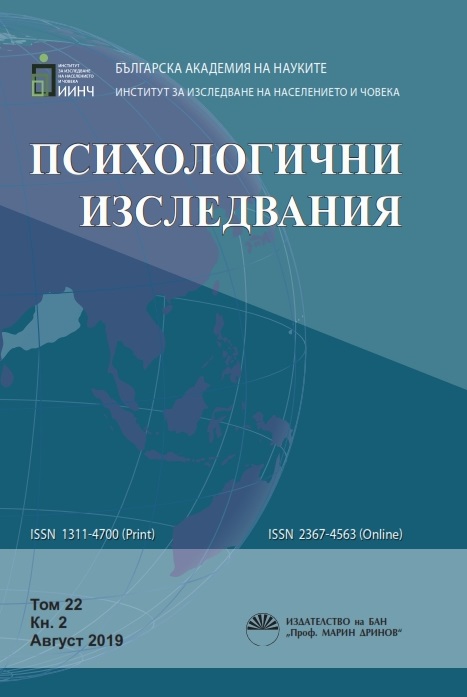Ментализационни дименсии и ментализационни нарушения при лица с Eмоционално нестабилно личностово разстройство – Граничен и Импулсивен тип
Mentalizing Dimensions and Mentalizing Impairments in Emotionally Unstable Personality Disorder – Borderline and Impulsive Type
Author(s): Gergana HristovaSubject(s): Social Sciences, Psychology
Published by: Институт за изследване на населението и човека - Българска академия на науките
Keywords: Mentalization; Mentalizing dimensions; Psychic equivalence mode; Teleological mode; Pretend mode; Emotionally Unstable Personality Disorder – Impulsive and Borderline type.
Summary/Abstract: The concept of Mentalizing underlies one of the few psychotherapeutic approaches that have proven effectiveness for the treatment of Emotionally Unstable Personality Disorder (EUPD). Mentalizing concerns the ability of a person to interpret behavior, both of self and of other people, as a function of one’s mental state. Four essential components can be distinguished in the process of mentalizing, which characterizes its multidimensional nature, namely automatic versus controlled mentalizing, selfversus other mentalizing, internal versus external mentalizing and cognitive versus affective mentalizing. Balance between the two poles of each dimension is crucial for the effective psychosocial functioning of the individual, whereas imbalance can result in mentalizing impairments. Mentalizing impairments are associated with maladaptive styles of psychosocial functioning such as psychic equivalence mode, teleological mode and pretend mode. Main purpose of this study is to illustrate the multidimensional nature of mentalizing in attempt to promote the Mentalization-based treatment approach to EUPD – Borderline and Impulsive types. MainMethod is case presentation –clinical cases have been selected among subjects attending psychotherapy in Veliko Tarnovo that meet diagnostic criteria for EUPD and one of these cases is briefly described here. As a result particular psychotherapeutic programIs under development in which elements of mentalizing approach are applied. Main contribution of the study is promoting and adapting the mentalizing approach for the specifics in Bulgaria. The experience acquired indicates that mentalizing approach demonstrates its relevance for the treatment of EUPD in Bulgaria.
Journal: Психологични изследвания
- Issue Year: 22/2019
- Issue No: 2
- Page Range: 592-611
- Page Count: 20
- Language: Bulgarian

